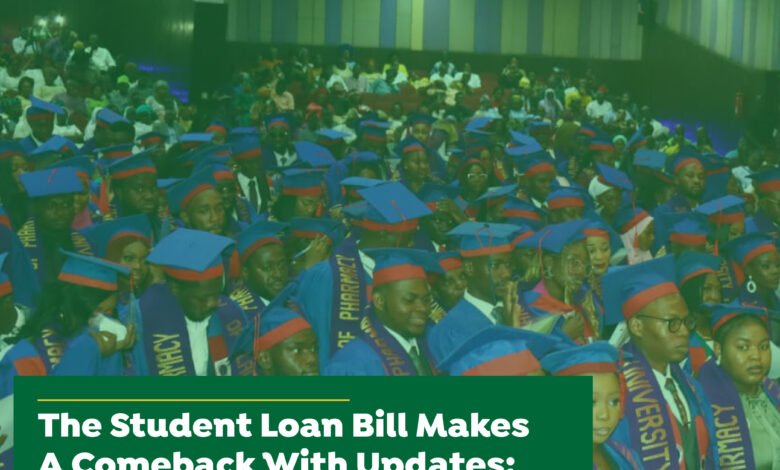The Student Loan Bill Makes a Comeback with Updates: Here’s What You Need to Know

The student loan scheme of the administration of President Bola Ahmed Tinubu is expected to commence soon following the accelerated hearing and passage of the Bill grounding it in law by the National Assembly. The new Bill reflects the yearning and aspirations of Nigerian students who have longed for creative and curative solutions to financial constraints hindering indigent students from accessing higher education and to end incidents of dropout from tertiary institutions.
For one, the new bill has repealed the unpopular family income threshold as a condition for applying for the student loan. In the previous bill that was assented to by the President last year June, family income of half a million naira formed an integral part of preconditions for applying for the loan. In this new draft, a student will no longer need to present and provide any document stating the financial standing and stability of their family. In a way, this makes sense for the poorest of the poor households who might be denied access to the loan on account of their family earning.
In addition to repealing the family income threshold, the new bill also removed the guarantor requirement so that students can freely and easily apply for and receive loans subject to application and identity verification in guidelines as provided by the fund. The guarantor requirement had raised infernal debate in the repealed law. But its expulsion from the new one shows both the executive and legislative arms of government listen to people’s concerns and perhaps, pay attention to their observations and suggestions.
In essence, this is probably the first time in a long while that the opinions of Nigerians will truly count and matter in shaping critical policies that affect Nigerians across all walks of life. Notably, the student loan scheme was one of the integral parts of President Bola Ahmed Tinubu’s campaign promises. Assented by the President in the early days of his administration, the student loan scheme is a testament to his vision for Nigerian students. But like any imperfect document, valid observations and concerns were raised by well-meaning Nigerians to advance and enhance the functionality and modus operandi of the scheme.
Not surprisingly, the various concerns noted by critical stakeholders were carefully addressed in the new bill by the lawmakers. For instance, the new bill established a justice and fairness provision, mandating the board to ensure a minimum national spread of loans approved and disbursed in each financial year. This inclusion seeks to give the scheme a national outlook which will further deepen the country’s diversity and unity.
This implication of this is that no part of the country will be shortchanged or sidelined. In this scheme, fairness, equity, and justice will play crucial role. In effect, the bill also added that beneficiaries shall not initiate loan recovery efforts until two years after the completion of the National Youth Service Corp program. This means that beneficiaries will be given ample time to job hunt and test the waters of the labor market for two years before kick-starting the repayment process.
For presenting false statements to the fund, the bill stipulates that anyone found culpable will be guilty of a felony and is liable to imprisonment to three years in jail. This is a remarkable stride on the part of the government, all eyes are on the success of the bill.




